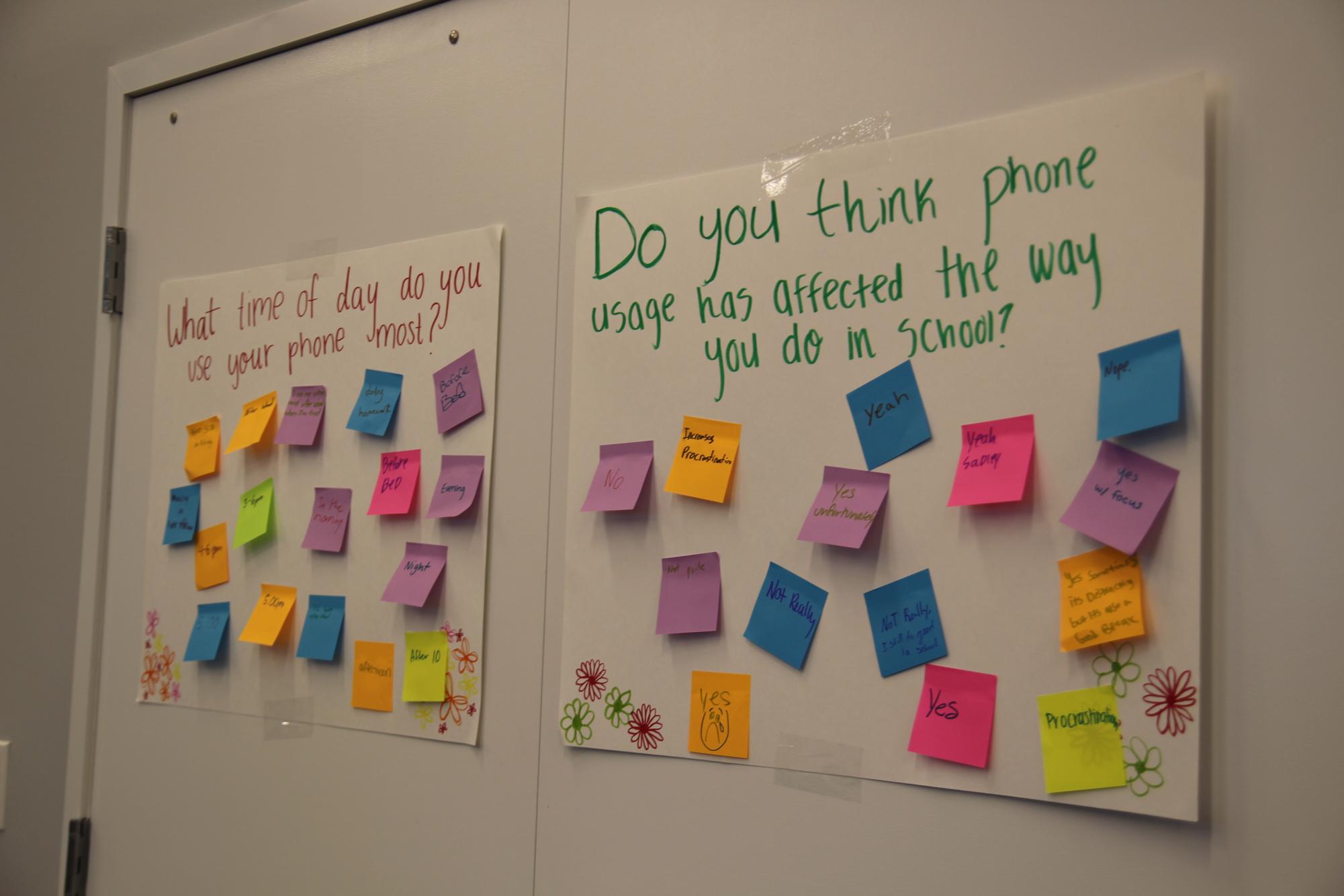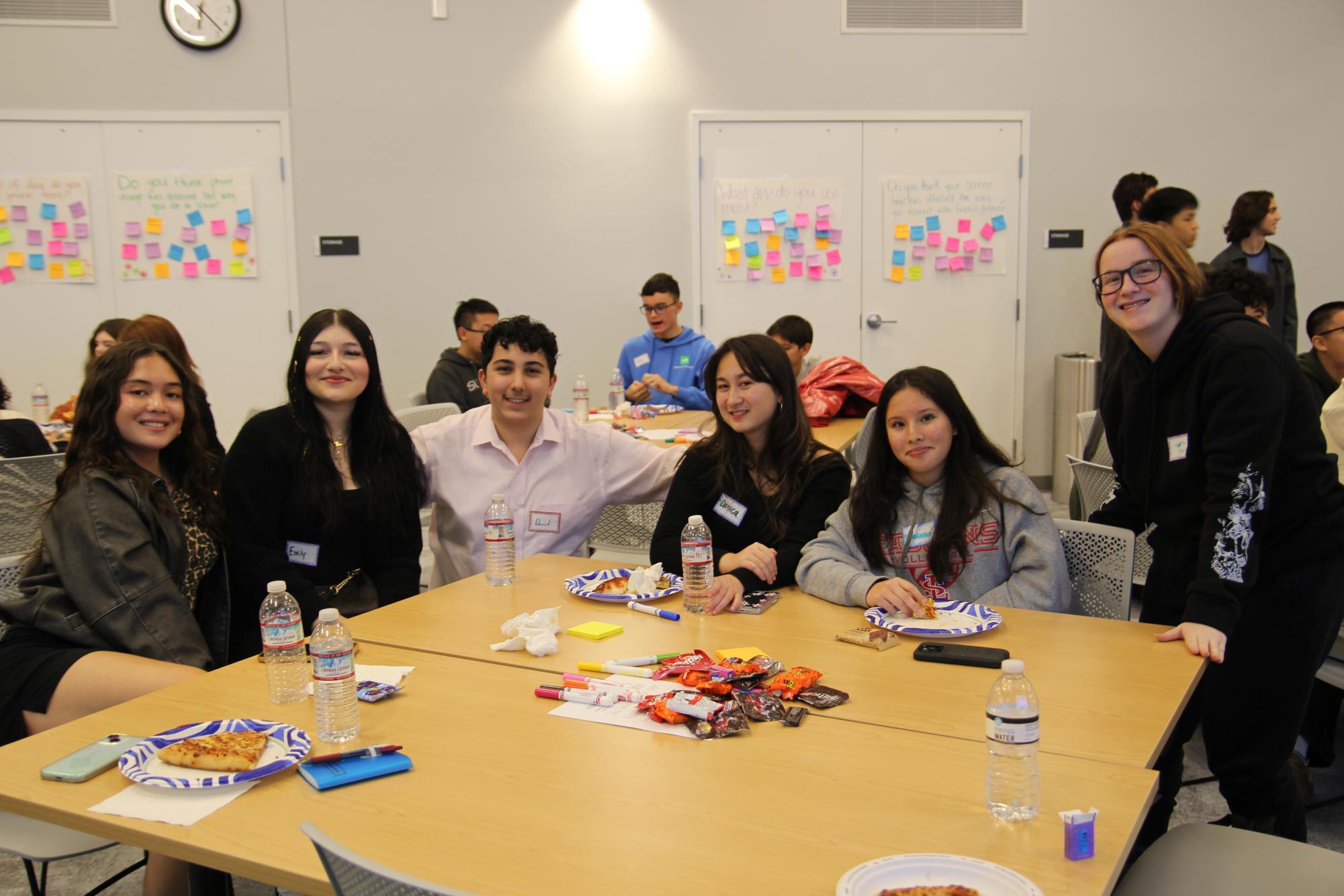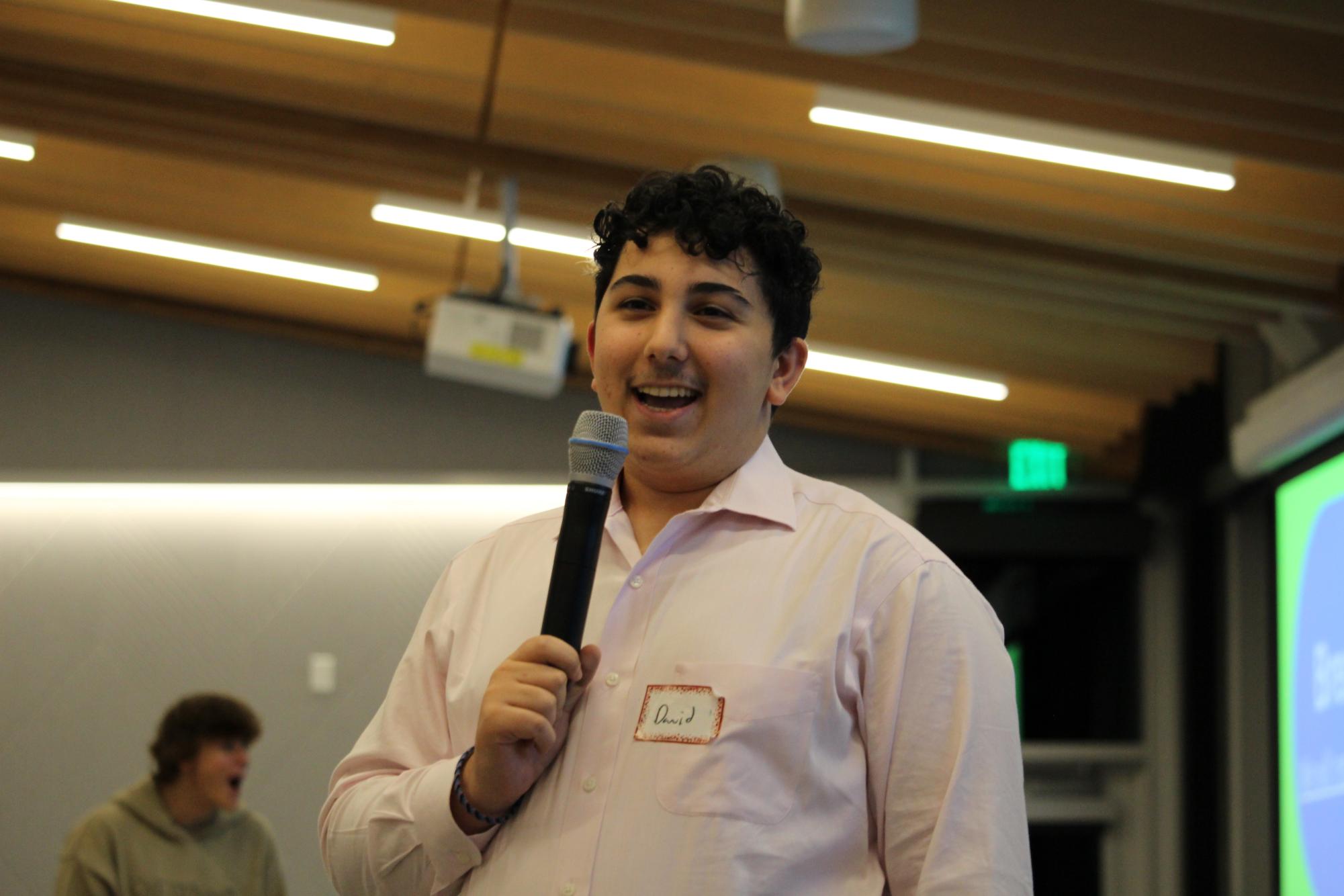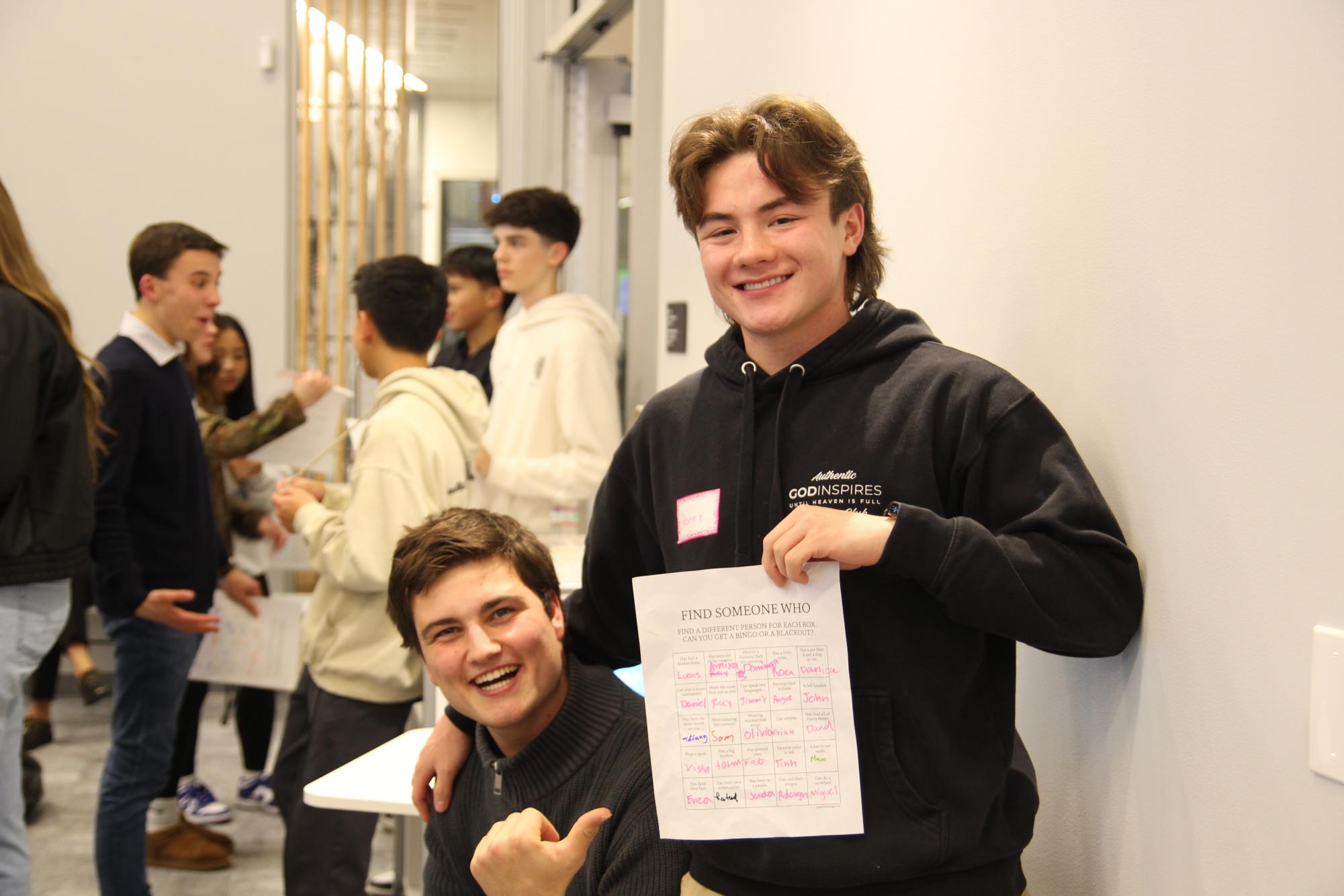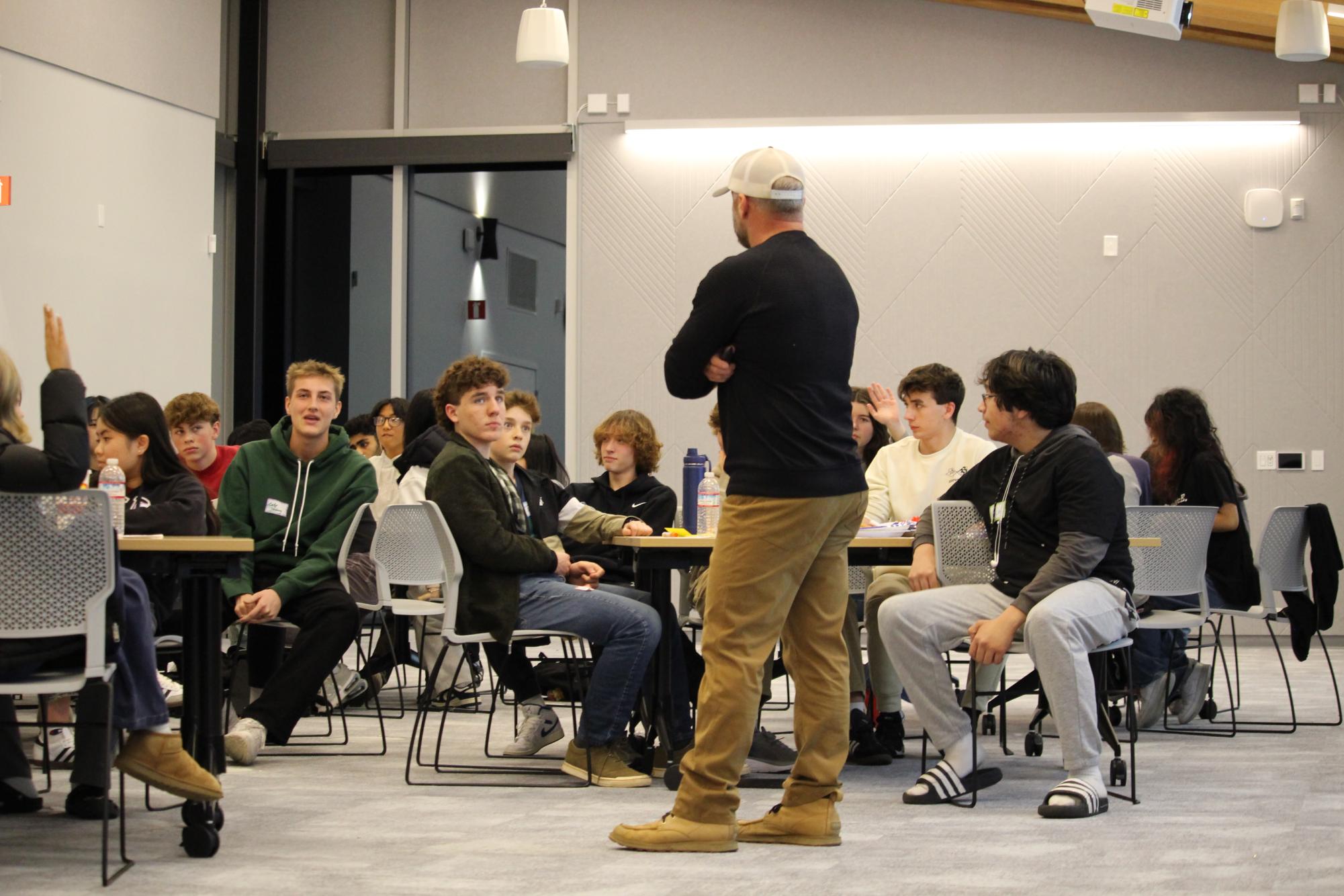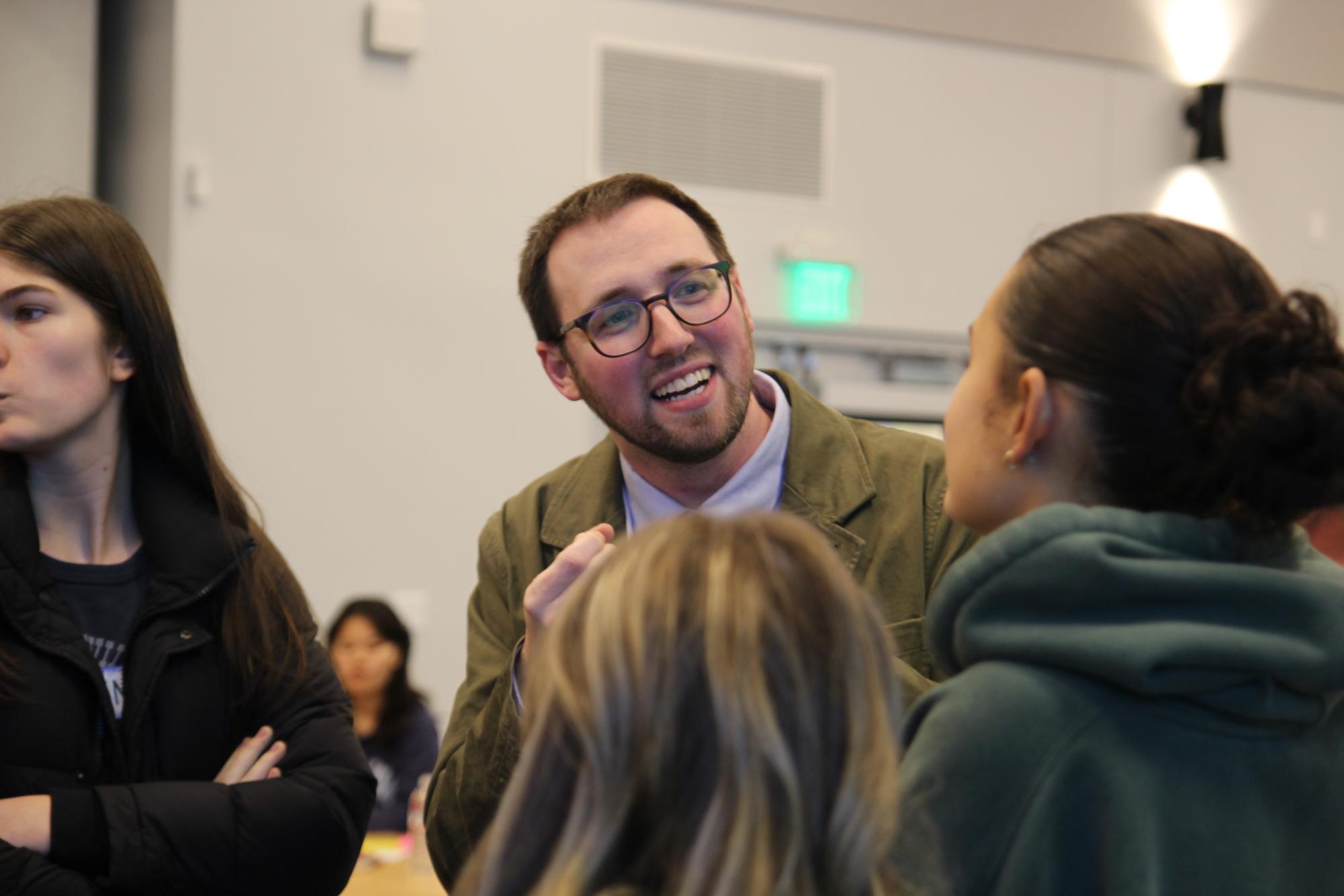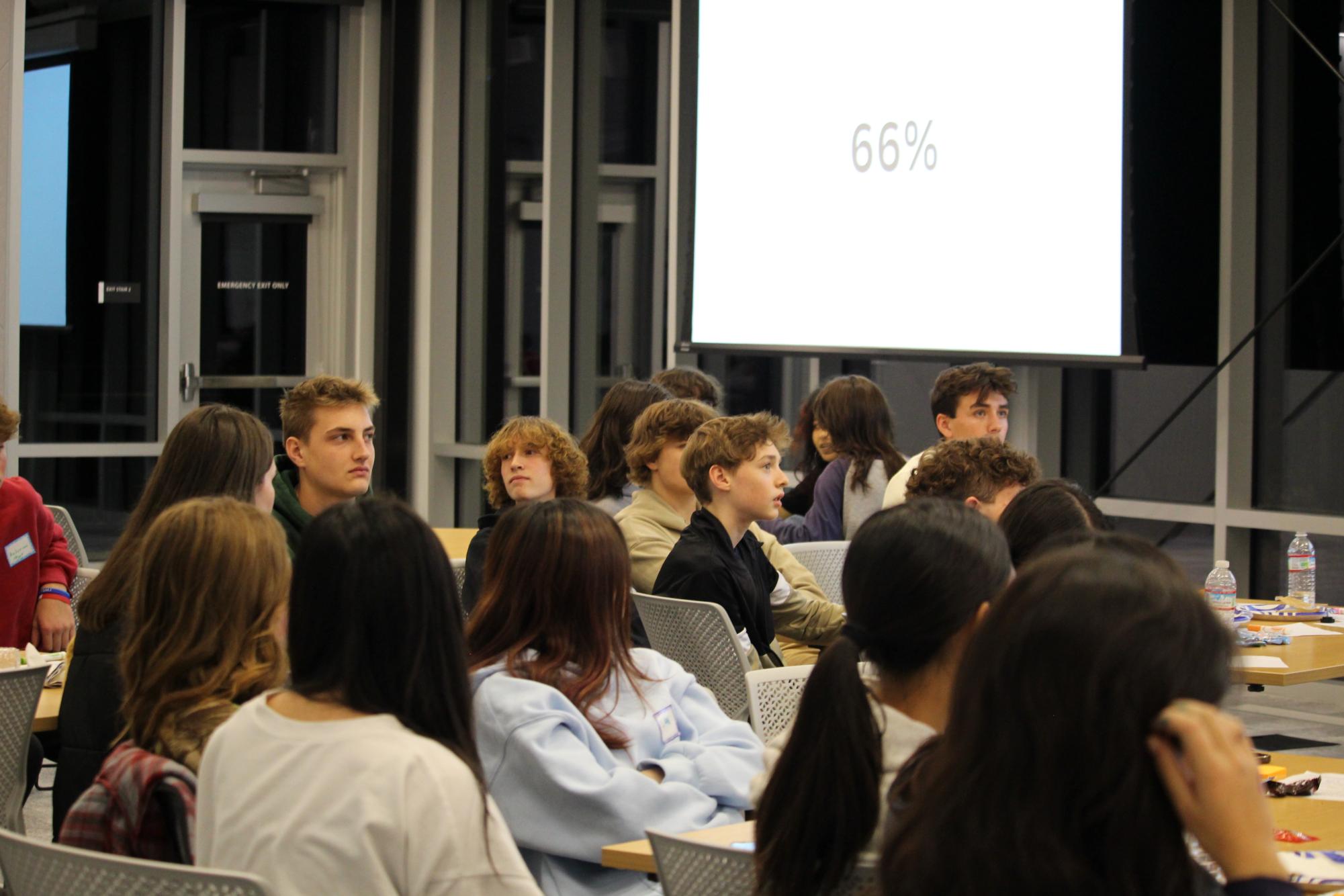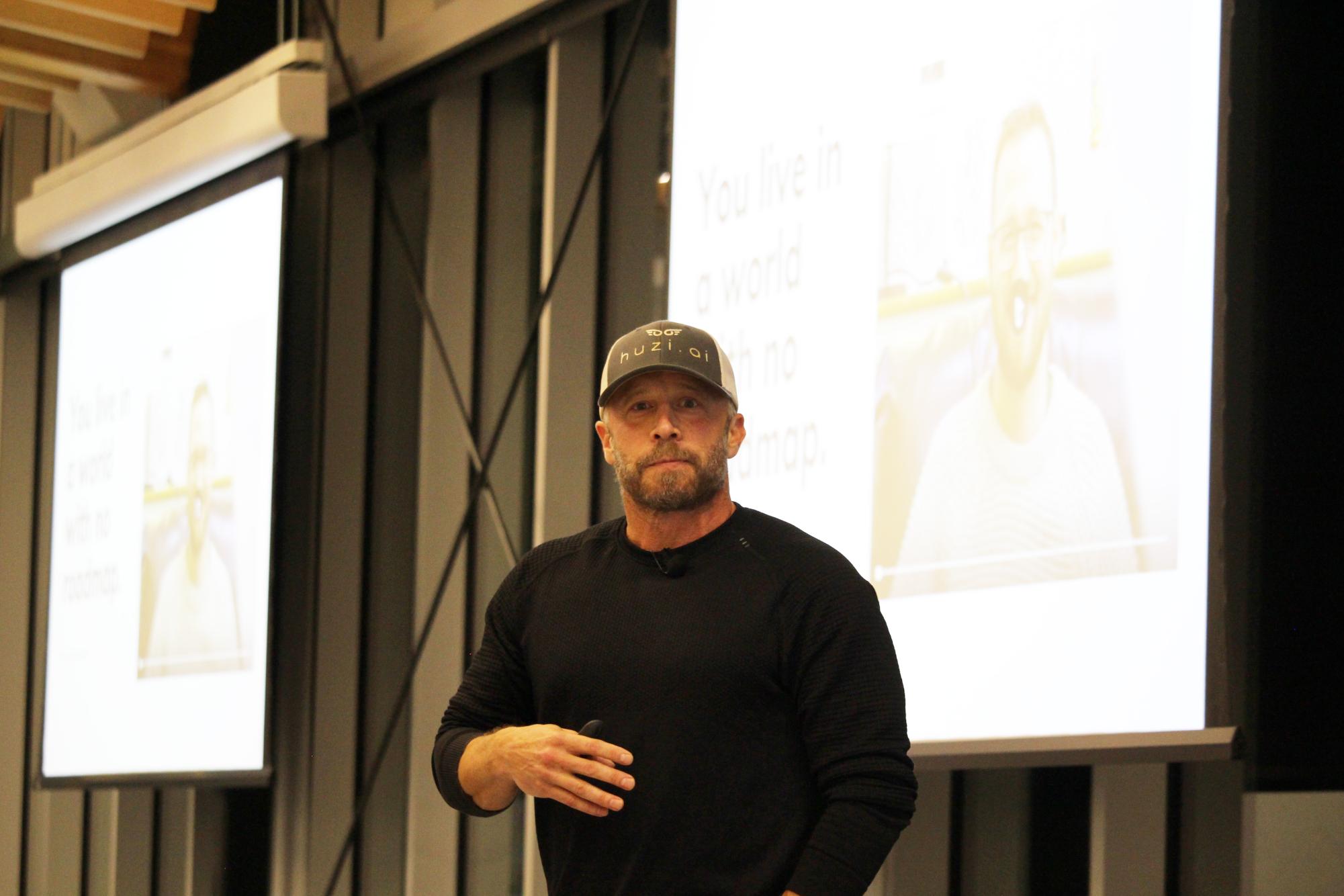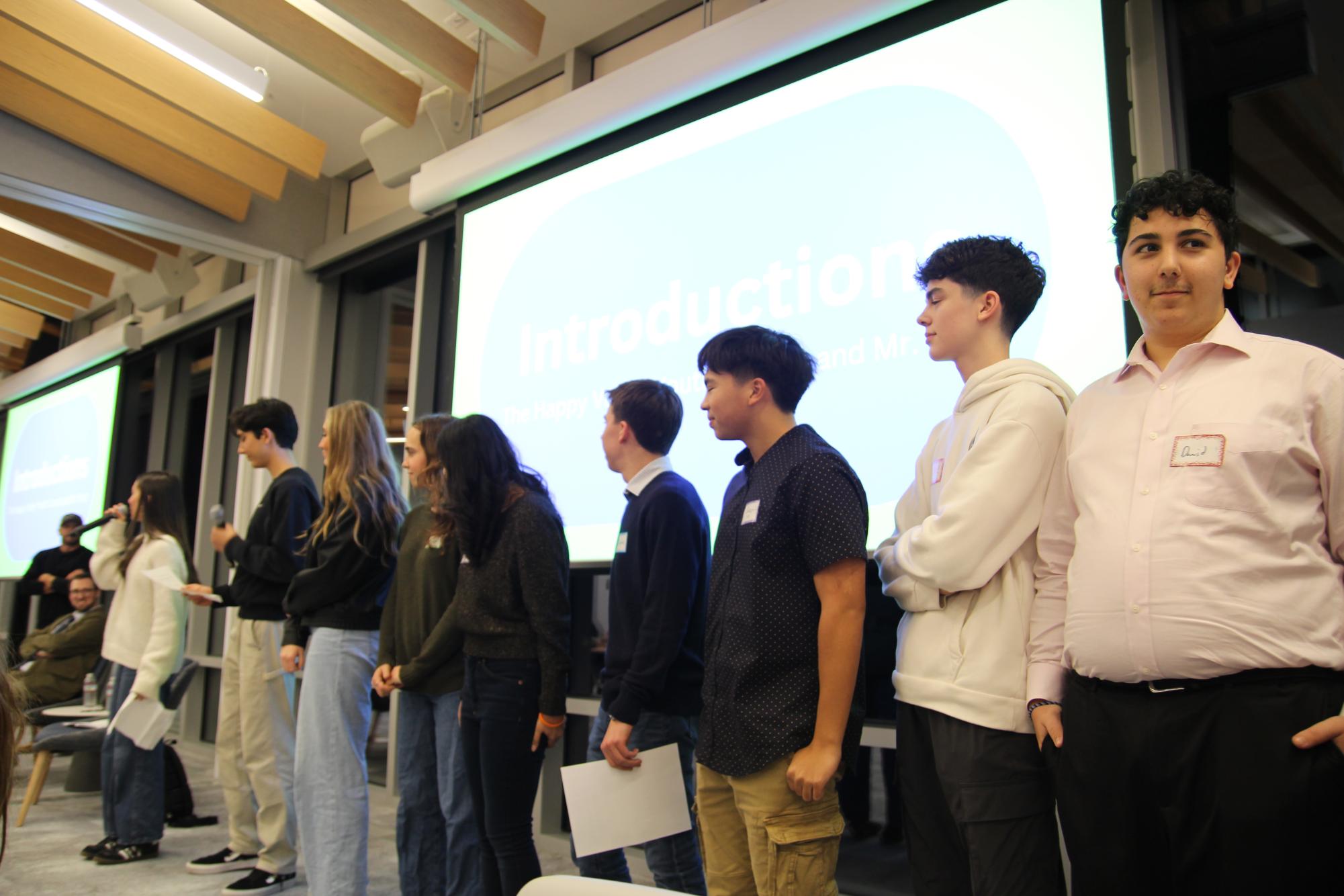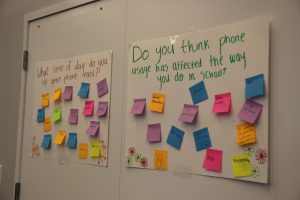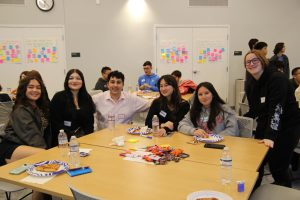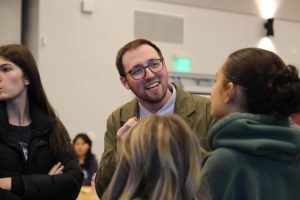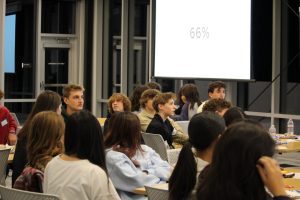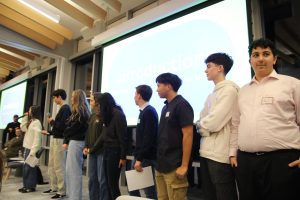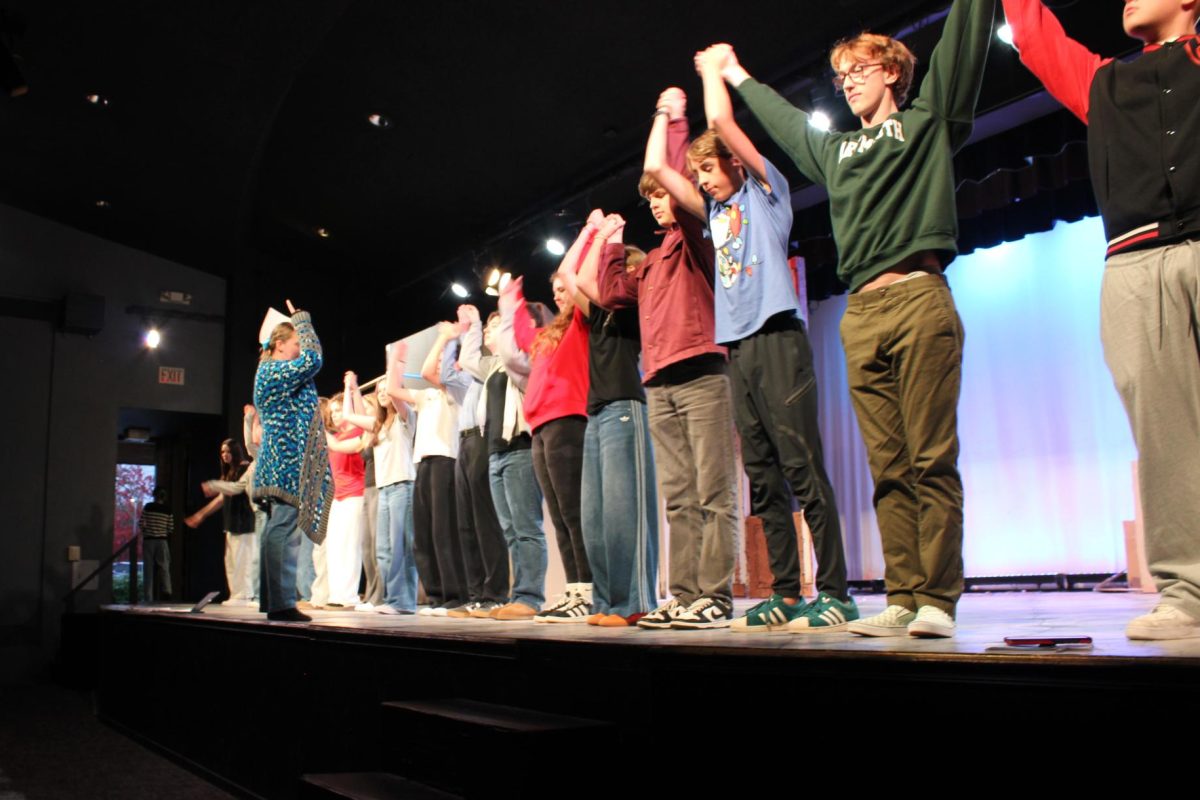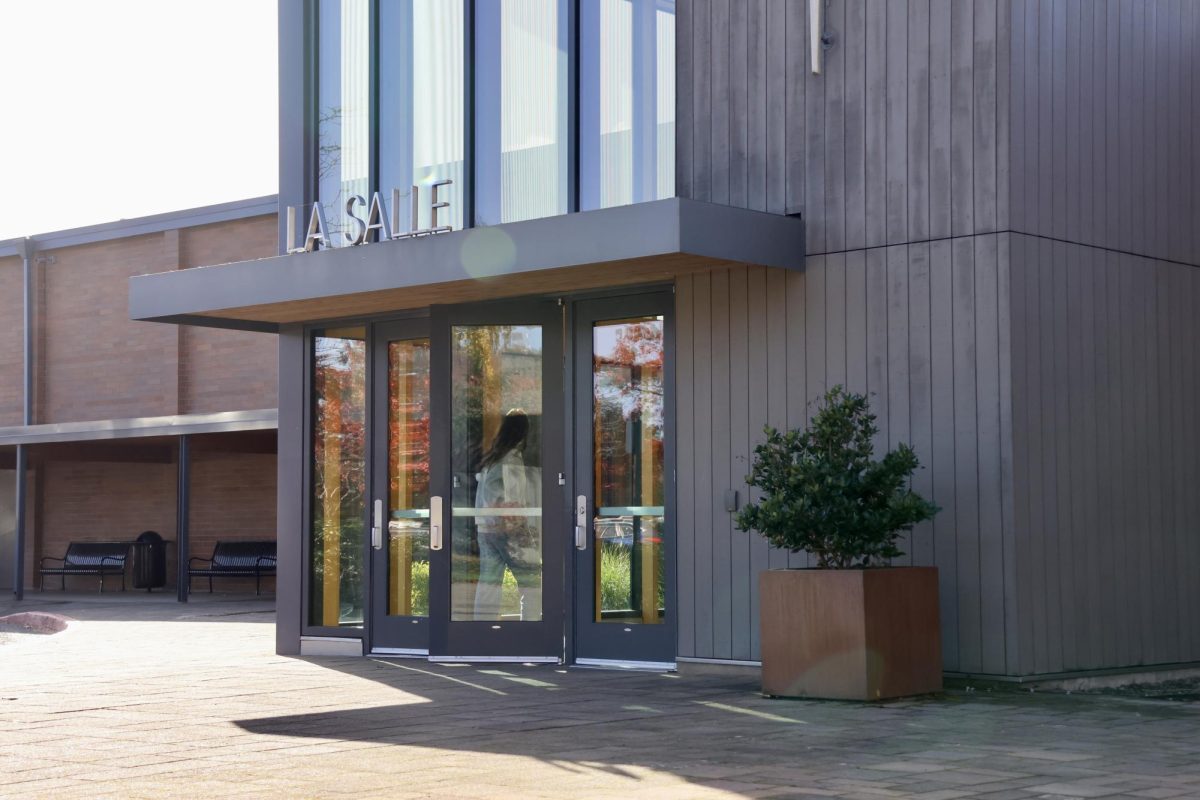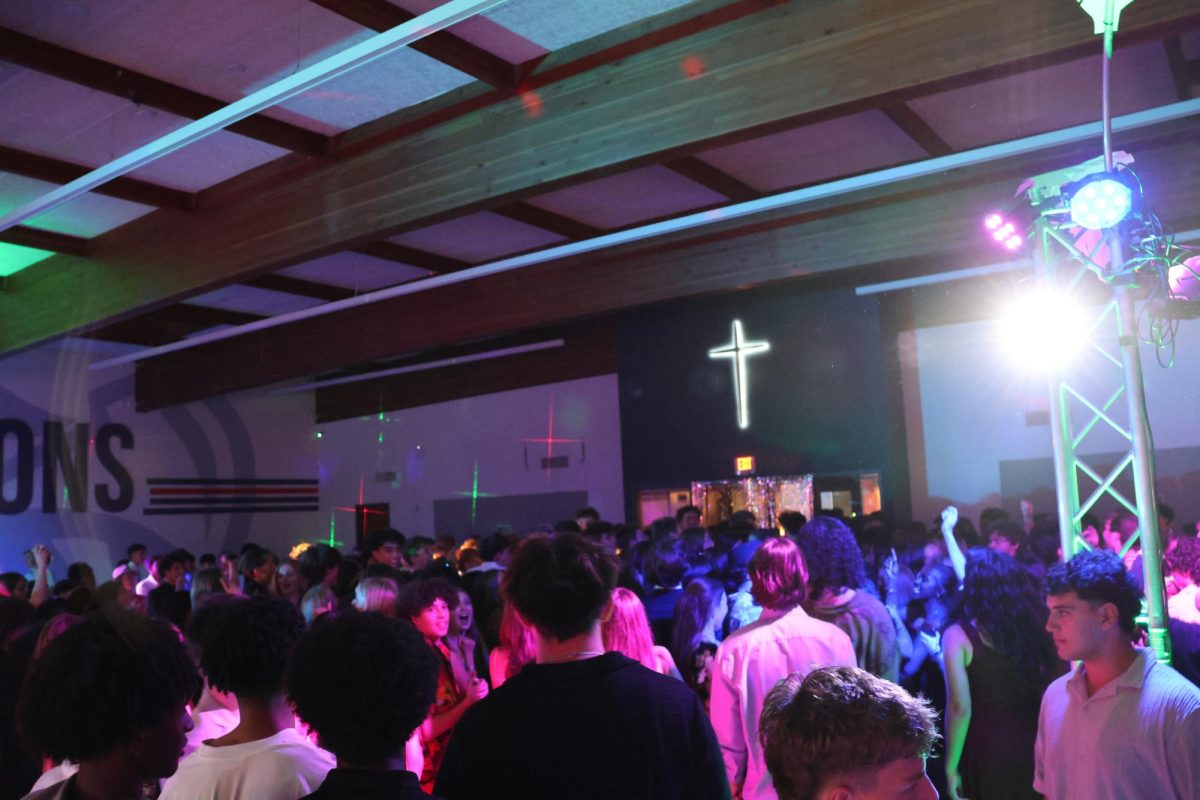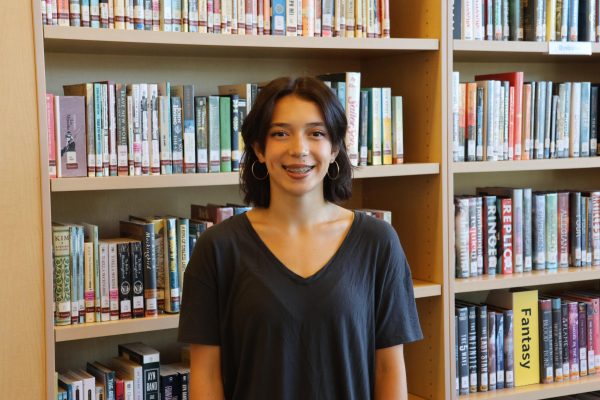Posters are hung up on the walls of the Happy Valley Library, covered in brightly colored sticky notes that answer these questions: “What app do you use most?” “Do you think phone usage has affected the way you do in school?” “Do you think your screen time has affected the way you interact with friends/peers?” and “What time of night do you put your phone away?”
Welcomed into a new room in the freshly-renovated Happy Valley Library, over 100 teens gathered together on Nov. 20 from 6 to 9 p.m. for the annual Happy Valley Youth Town Hall meeting, which was centered around discussing the impacts of technology on teens.
Students started by making name tags and rushing over to eat the provided pizza and candy before sitting down and getting to know their table mates.
The focus of the meeting was “The Impact of Social Media on Youth” in an effort to help teens navigate the effects of technology, artificial intelligence (AI), and social media.
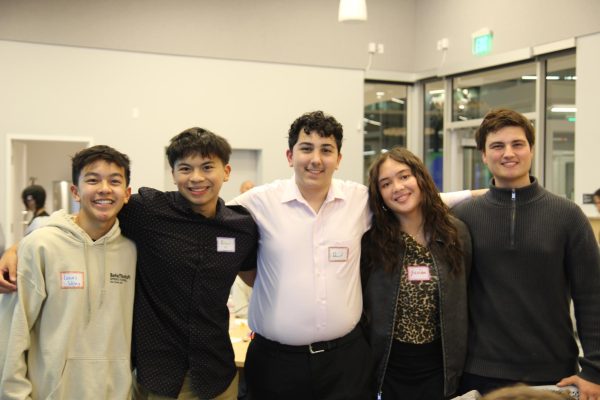
To begin, the members of the Happy Valley Youth Council introduced themselves, including five students from La Salle — juniors Larissa Bonn, David Sharyan, and John Rask Jr., sophomore Gian Manzon, and freshman Lucas Wong. They then transitioned into a discussion with La Salle guest speaker and English Department Chair Mr. Greg Larson about “The Lost Art of Communication,” facilitated by the founder of an AI company, Huzi.ai, Eric Post.
“I am deeply interested in the relationship between humans and technology,” said Mr. Larson, expressing that he wants to help people explore “the ways technology replaces thinking and the ways technology can help us do the thinking.”
During the question and answer segment, Mr. Larson and Post highlighted that as technology begins to self-improve with the abilities of AI, it will continue to upgrade exponentially, making this a scary time for teenagers to navigate as it will change the future.
Not long ago, the invention of cell phones changed people’s lives, similarly to how AI has dramatically impacted the lives of teenagers. Post and Mr. Larson said that young people can rely on those who experienced that previous shift so that they know how to move forward with AI.
Mr. Larson says that reading is important because it connects us to the past and carries through the future. Old books are important because they talk about current technology, and the lessons we learn and the ideas discussed are relevant to the present and will continue to be in the future; although AI might be new, the introduction of new technology to society is not.
Mr. Larson said that people should read with the question: “What might this have to offer us about new technology that might fundamentally change how we move through the world?” because that is ultimately how we interact with each other.
“How do I see my story in the story of another?” asked Mr. Larson.
This idea carried into a discussion of the impacts of technology on communication.
“Your life depends on your ability to share yourself in an authentic way,” Post said.
Post told a story about a near-death experience that caused an awakening that “we cannot experience life through a phone,” Post said.
And that is where technology endangers human authenticity, because technology — social media especially — alters our perception of reality.
Post shared that AI is a helpful tool because it requires clear verbal communication, but he argued that communication is much more than simply words, “it is about body language, pace, and expression” too.
Online, people are “different” and “braver,” he said and that comments, both good and bad, affect how you feel about yourself.
He wants the youth to be wary of free social media platforms, saying, “if you do not pay for the product, you are the product.”
Social media can connect people, but there are also bots that are designed to “hijack your emotions and pull your attention,” Post said.
After he woke up on a hospital bed, causing him to reflect on his life, he came to this understanding: “I had no regrets because I was experiencing things at a deep level,” he said. And he urges teens to do the same.
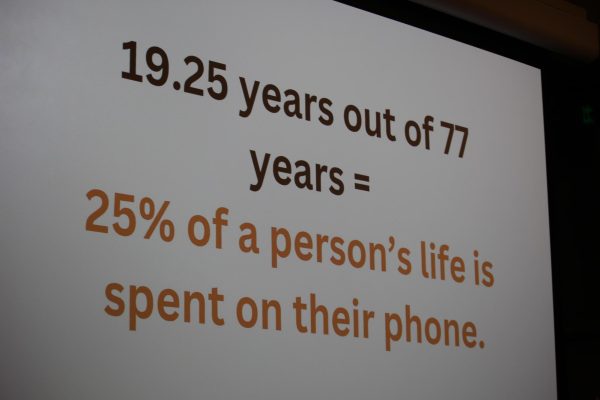
“You live in a world with no road map,” Post said. Since it is up to teens to create their own world, Post urges them to be loud about their future. “Please step into yourself,” he said. “You deserve your voice to be said.” He doesn’t just want their ideas to be heard, but for their individual voices to be spoken.
The students then participated in a contest that called for them to examine their daily screen time average that week.
The highest amount was 18 hours per day, and the lowest was four minutes per day.
Post then presented statistics about teen relationships with phone usage and mental health. For example, “95% of teens get a phone between 13-19” and “10% of teens use their phone more than 10 hours a day.”
To close the meeting, a discussion was opened up to the participants about the new policy adopted by many public schools: iPhone pouches, where students must lock their phones in pouches at the beginning of the school day and cannot access them until the end of the day.
Many students had varying views on the effectiveness and fairness of this plan, some arguing that it helped, and others saying it is a safety concern that they cannot contact their families while in school.
Regardless of their personal feelings towards the policy, the underlying problem that most teens could agree on was that students don’t feel as though they have a voice in the matter.
As the meeting came to an end, the Youth Council members lingered behind to pack up the tables and chairs, finish discussing the event’s success, and eventually file out of the library doors.


